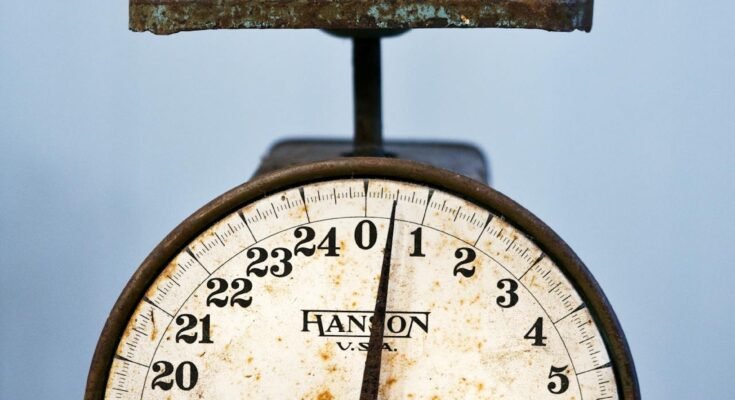- Weight loss is a healthy process that includes eating, exercise, and lifestyle change. Some people lose weight for health reasons, to improve the quality of life, or to boost self-esteem. Weight loss is not just about restricting calories, however; it’s about eating healthy to ensure overall health and well-being.
Here in this article, we will discuss how diet helps in weight management, what foods can be employed to lose weight, and how to develop a healthy, sustainable diet plan.
Knowing Weight Loss
Before diving into foods, it’s important to understand the science behind weight loss. Weight loss occurs when the body burns more calories than it consumes, creating a calorie deficit. This deficit forces the body to use stored fat for energy, leading to weight loss. The key to losing weight is a balance between energy intake (calories from food) and energy expenditure (calories burned through activity).
Some things influence weight loss, including: - Basal Metabolic Rate (BMR): How many calories your body expends at rest to maintain fundamental functions, like breathing and digestion.
- Physical Activity: Exercise, activity, and physical levels assist in the contribution of calories burnt.
- Diet: What foods you eat influences how many calories you consume and their nutritional content, and may affect your metabolism and hunger.
The Role of Foods in Weight Loss
The food you eat directly impacts your ability to lose weight. It’s not just about cutting calories; it’s about making nutrient-dense food choices that nourish the body and support fat burning. A balanced, healthy diet provides necessary nutrients, helps with hunger control, and supports overall health.
1. Protein-Rich Foods
Protein is a macronutrient that plays a great deal in weight loss. Keeping adequate levels of protein in the diet works to keep you retaining lean body mass as you lose fat. Protein makes you feel full for a longer period of time, so you’re less prone to overeating calories.
Examples of high-protein foods:- Chicken breast (lean meat)
- Turkey
- Fish (salmon, tuna, mackerel)
- Tofu and tempeh (for vegetarians and vegans)
Eggs - Greek yogurt
- Beans and lentils
Nuts and seeds - 2. Fiber-Rich Foods
Fiber is also a significant contributor to weight loss. Fiber aids digestion, lowers cholesterol levels, and keeps blood sugars healthy. A diet high in fiber also contributes to feelings of fullness and will discourage snacking and overeating.
Soluble and insoluble are two types of fiber. Soluble fiber lowers sugar levels in the blood and lowers cholesterol, and insoluble fiber digests foods and prevents constipation.
Examples of foods with high fiber content: - Whole grains (oats, quinoa, brown rice)
- Fruits (apples, berries, pears)
- Vegetables (broccoli, spinach, kale)
- Legumes (beans, lentils, chickpeas)
- Nuts and seeds
- Sweet potatoes
3. Healthy Fats
Not all fats are created equal. While unhealthy fats (trans fats and saturated fats) can cause weight gain and ill health, healthy fats can even contribute to weight loss by increasing satiety and metabolic function. Healthy fats are also required for the absorption of fat-soluble vitamins like vitamins A, D, E, and K.
Healthy fats include: - Avocados
- Olive oil (extra virgin)
- Nuts (almonds, walnuts, cashews)
- Seeds (chia seeds, flaxseeds, pumpkin seeds)
Fatty fish (mackerel, sardines, salmon)
4. Low-Calorie Vegetables
Vegetables are full of vitamins, minerals, and antioxidants, and thus they should form a key part of every healthy diet. Vegetables tend to be very low in calories but high in fiber, making them ideal for anyone who needs to lose weight. Having a colorful variety of vegetables can deliver an array of nutrients while limiting the calorie load.
Examples of low-calorie vegetables:
- Leafy greens (arugula, kale, spinach)
- Zucchini
- Cucumbers
- Tomatoes
- Cauliflower
- Brussels sprouts
- Bell peppers
5. Hydrating Foods
Proper hydration is often overlooked in weight reduction diets, yet proper water intake and water-containing foods will augment weight reduction efforts. Water helps to keep the body properly hydrated, aids in digestion, and can serve as a hunger-controlling method. Thirst may disguise itself as hunger and result in unwanted snacking. Intake of water before meals could avoid total calorie intake.
Some examples of hydrating foods: - Watermelon
- Cucumbers
- Celery
- Cantaloupe
- Tomatoes
- Strawberries
6. Whole Grains vs. Refined Grains
Whole grains, including oats, quinoa, and brown rice, are better choices for weight loss than refined grains like white bread, pasta, and rice. Whole grains are less processed and contain more of their natural nutrients, including fiber. This results in longer-lasting energy and the ability to control blood sugar levels, making it less likely to overeat or experience energy crashes.
Whole grains to add to your diet: - Oats
- Brown rice
- Quinoa
- Barley
Whole grain pasta and bread
Buckwheat
7. Portion Control’s Role
Portion control plays a vital role in weight loss since it helps you not overeat even though you are eating healthy foods. Knowing how to listen to your body’s hunger and fullness cues can help you maintain a healthy weight without feeling deprived.
Consuming off small plates, taking measurements, and not eating while watching TV or any other distracting content will help you eat mindfully and not overeat. Balanced meals practice is also crucial, as it must contain a combination of protein, healthy fats, fiber, and complex carbs in every meal to make you feel full and satisfied.
8. Mindful Eating
Mindful eating is a practice where you listen to what your body needs and eat slowly to enjoy the experience of eating. Being mindful helps you not to overeat, digest better, and select better foods.
Foods to Avoid for Weight Loss
Although staying focused on nutrient-rich foods is key, paying attention to what can be blocking weight loss is crucial as well. Certain foods are calorie-dense but lack a lot of nutrients and can contribute to weight gain if eaten excessively.
1. Processed Foods and Sugary Snacks
Packaged foods such as chips, sweets, and candy are typically filled with empty calories, which provide little or no nutritional content. They bring on rapid spikes in blood sugar followed by crashes, leaving you starving and in want of another shot.
2. Sugary Drinks
Fizzy drinks like sodas, sweet tea, and fruit juice can also lead to significant weight gain because of their calorie density and the absence of nutrients. Herbal tea, water, or unsweetened beverages are a healthier choice.
3. Refined Grains
Refined foods such as pasta and white bread have their nutrients and fiber stripped when processed. Processed foods raise blood sugar and can trigger the desire to eat more. Go for whole foods instead, as they have a higher nutritional and fiber content.
4. Fried and Fast Foods
Fast foods and fried foods are likely to contain unhealthy fats and added sugars. They cause weight gain and increased risk of chronic diseases like diabetes and heart disease. Opt for healthier methods of cooking like steaming, baking, or grilling.
relationship between sugar and weight loss
Sugar, in all its forms, has become a part of the standard diet. In processed foods, sweet beverages, or sweets, sugar is usually consumed in amounts that are more than what our bodies can process without knowing the long-term effects. With shedding of weight, sugar can either be a deciding factor in preventing or leading your weight loss. Understanding how sugar impacts your body is important in making the most informed decisions about your diet.
Natural occurring sugars: Included in whole foods such as fruit, vegetables, and milk. These sugars, like fructose in fruit and lactose in milk, will often have fiber, vitamins, and minerals associated with them, making them a healthier choice.
Added sugars: These include sugars and syrups added to food and beverages during processing or food preparation. They provide empty calories, meaning they don’t provide any nutritional value but contribute to weight, increase blood sugar levels, and other medical issues.
Foods that include high amounts of added sugars are baked foods, candies, processed foods, sodas, and sweetened breakfast cereals.
How Sugar Affects Weight Loss
Too much sugar in your diet can hinder your weight loss process in various ways. Let’s talk about how sugar behaves in the body:
1. Blood Sugar and Insulin Spikes
When you consume foods and beverages with a high sugar content, they immediately increase your blood sugar levels. As a result, your pancreas secretes insulin, a hormone that allows the body to reserve excess glucose (sugar) for future use. Persistent elevated levels of insulin over a period of time may lead to insulin resistance, whereby the cells within your body are no longer sensitive to insulin. Insulin resistance is also frequently associated with obesity and type 2 diabetes.
The more frequently you consume sugary foods, the more your body experiences these blood sugar spikes and dips. If blood sugar levels drop quickly after a surge, you may feel hungry, crave, and low in energy—leading to overeating and snacking. This creates a cycle that makes it difficult to achieve a calorie deficit, which is necessary for weight loss.
2. High Calorie Content in Sugary Foods
Added sugars, like those in soda, desserts, and sweet treats, are a major source of calories. These calories tend to be “empty” in that they don’t offer much nutritional value. For example, consuming a soda or a sweet pastry can contribute hundreds of calories to your daily consumption without offering the nutrients your body requires to operate at its best.
These excess calories can readily build up, and it becomes very challenging to develop a calorie deficit necessary for weight loss. Unless the body expends these extra calories in the long run, they are stored as body fat.
3. Impact on Hunger and Satiety
Sweets do not make you feel full for long. Unlike protein, fiber, and fat, sweets are metabolized and digested very quickly, so they won’t satisfy you for the long term. After eating something sweet or drinking a sweet drink, you may feel hungry again a little while later. This makes people overeat because they continue to consume calories throughout the day.
4. Sugar and Fat Storage
One of the ways in which sugar leads to weight gain is by triggering fat storage, especially around the stomach. When the body is overloaded with insulin due to constant consumption of sugar, the body becomes proficient at storing fat. Specifically, sugar leads to visceral fat, the fat stored around the internal organs, and this is linked to various diseases such as heart disease, insulin resistance, and fatty liver disease.
Sugar Types and Their Impact on Weight Loss
All sugars are not created equal. Naturally occurring sugar in whole foods is accompanied by fiber, vitamins, and minerals to help with overall health, whereas added sugars have fewer benefits. Let’s examine the different types of sugar and how they impact weight loss.
1. Refined Sugar
Refined sugars such as table sugar (sucrose) and high-fructose corn syrup (HFCS) are found almost everywhere in processed foods and sweet beverages. Such types of sugar are absorbed fast in the bloodstream, leading to immediate blood sugar and insulin levels. Thus, they are one of the greatest reasons for weight gain and metabolic damage when consumed in excess.
2. Fruit Sugar (Fructose)
Fructose is fruit-borne natural sugar. While fructose is not processed like white sugar, it also contributes to weight gain when consumed in large amounts, especially as fruit juice or dried fruits. Fresh fruits, however, come with fiber, which slows down sugar intake and has less impact on blood glucose levels. Taking whole fruits moderately is a healthier weight loss choice compared to fruit juices or fruit products.
3. Artificial Sweeteners
Artificial sweeteners, such as aspartame, sucralose, and stevia, are widely used as sugar substitutes in diet soda and other low-calorie foodstuffs. While they contain no calories, some studies have found that consuming artificial sweeteners does tend to stimulate cravings for sweet foods and impair the body’s capacity to regulate calorie intake. The evidence for or against artificial sweeteners leading to weight gain is still mixed, but most experts recommend limiting their use.
How to Cut Down Sugar Intake to Lose Weight
Cutting down on sugar is an important trick for successful weight loss. Some effective tips on how to do this and shed those unwanted pounds are:
1. Stay away from sugary drinks
Fruit juices, sweet coffee, energy drinks, and soft drinks are among the biggest sources of added sugar for most people. These beverages carry a lot of calories but contain little or no nutrients. Reduce sugar by replacing sugary drinks with water, herbal tea, or unsweetened beverages like sparkling water or black coffee.
2. Choose Whole Fruits Rather than Fruit Juices
Fruit juices, even “100% juice” products, are very high in sugar concentration. They lack the fiber that is found in whole fruits, so they cause rapid blood sugar increases. Opt for whole fruits like apples, berries, and oranges, which provide fiber, vitamins, and minerals as well as natural sugars.
3. Read Nutrition Labels
All packaged foods contain added sugars under some other names such as sucrose, high-fructose corn syrup, agave nectar, etc. When purchasing processed food, read the ingredient panel and nutrition facts label to identify added sugars. Choose products with low or no added sugar, or choose better choices such as plain yogurt, unsweetened almond milk, and whole-grain cereals.
4. Cook at Home More Often
Preparing meals at home gives you full control over the ingredients and allows you to avoid hidden sugars often found in restaurant meals or takeout. When cooking, use whole, unprocessed ingredients like fresh vegetables, lean proteins, whole grains, and healthy fats. Avoid using sugary condiments and dressings, opting instead for herbs, spices, and vinegar to add flavor.
5. Limit Sugary Snacks and Desserts
It’s easy to overindulge in high-sugar snack foods and desserts like cakes, cookies, candies, and pastries. They are usually high in sugar and fat and not much else nutritionally. To indulge a sweet tooth, opt for healthier options like fresh fruit, dark chocolate in moderation, or homemade versions made with a natural sweetener like honey or maple syrup.
Conclusion:
Weight loss is not about quick fixes or extreme diets. It’s about making sustainable changes to your eating habits and lifestyle that promote overall health. By focusing on nutrient-dense, whole foods—such as lean proteins, fiber-rich vegetables, healthy fats, and whole grains—you can create a balanced diet that supports weight loss while nourishing your body.
Remember that the key to long-term success is consistency, mindful eating, and establishing a routine that works for you. The integration of a healthy diet with consistent exercise and stress-reduction techniques can have long-term implications and a healthier, more vibrant lifestyle.
By making intelligent choices regarding your diet, opting for whole foods and avoiding sweet treats and beverages, you are able to monitor your sugar consumption and progress toward a healthy weight. The thing to remember in this regard is that you won’t have to deprive yourself in order to lose weight, but you’ll be working on finding balance that will lead you to your goals and nourish your body in the end.



